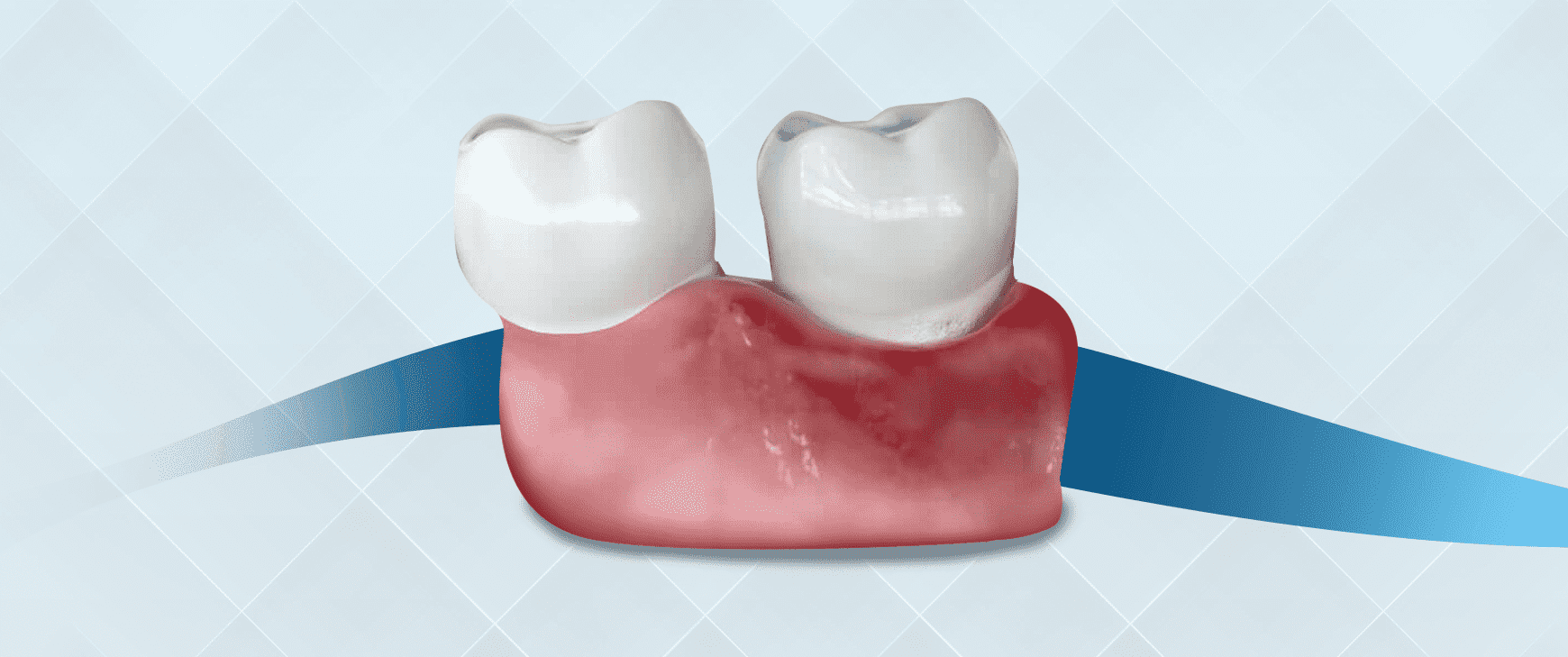Gingivitis
Salih ÖNDER2023-10-26T15:15:41+03:00Gingivitis, gingivitis, or gingivitis, is a common and mild form of gum disease. Gingivitis causes inflammation of the gums with irritation, redness and swelling. It is important to take gingivitis seriously and treat it promptly. Because gingivitis can cause a much more serious gum disease called periodontitis, or even tooth loss. The most common cause of gingivitis is poor oral hygiene. Oral habits such as brushing at least twice a day, flossing daily, and regular dental checkups help prevent and treat gingivitis.
What are the symptoms of gingivitis?
Healthy gums are pink in color and fit tightly around the teeth. Gingivitis signs and symptoms include:
- swollen or puffy gums
dark red gums
Gums that bleed easily when you brush or floss
Bad breath
recession in gums
sensitivity in gums
When to contact the dentist?
If you notice the symptoms of gingivitis in the form of gingivitis, it is useful to make an appointment with your dentist immediately. The sooner treatment is started, the better your chances of curing the damage from gingivitis and preventing progression to periodontitis.
What Causes Gingivitis?
The most common cause of gingivitis is poor oral hygiene, which causes plaque to form on the teeth. Plaque on the teeth causes gingivitis by several mechanisms:
Starches and sugars in food interact with bacteria naturally found in the mouth to form plaque, an invisible, sticky film made mostly of bacteria on the teeth. Teeth should be cleaned by brushing daily, as dental plaque regenerates quickly.
If the remaining plaque on your teeth is not cleaned, it hardens below the gum line and turns into tartar. Tartar creates a shield for bacteria, causing irritation along the gum line. It is not possible to clean the plaques that have turned into dental calculus with your own effort. For this, it is essential to get professional help from your dentist.
If the plaque and calculus on your teeth stay there for long periods of time, it causes irritation at the base of the gum and eventually causes gingivitis at the base called gingivitis. Over time, your gums swell and become prone to bleeding. Gingivitis also causes tooth decay. Untreated gingivitis leads to periodontitis and eventually tooth loss.
How to prevent gingivitis?
Points to consider in order to prevent the development of gingivitis;
It is important to pay attention to oral hygiene. It will be beneficial to brush the teeth at least twice a day, in the morning and before going to bed at night, and to clean between the teeth with dental floss at least once a day.
If you can, you should brush your teeth after every meal or snack.
Flossing before brushing helps remove loose food particles and bacteria.
Regular dental visits should be made. It is recommended to visit the dentist for a cleaning regularly, usually every 6 to 12 months.
If you have risk factors for periodontitis, such as dry mouth, certain medications, or smoking, you may need more frequent dental cleanings. Annual dental x-rays help detect diseases that cannot be seen on a visual dental exam and are useful in tracking changes in dental health.
It is important to treat chronic diseases and quit harmful habits. If you have a chronic illness such as diabetes, practices such as healthy eating and keeping blood sugar under control are also important for maintaining gum health. Quitting habits that facilitate gingivitis, such as smoking or excessive consumption of sugary foods and beverages, are effective in protecting our gum health.
Dental Group Hospitadent provides services in all branches for the diagnosis and treatment of all kinds of dental and gingival problems with its state-of-the-art equipment and experienced dentists.
Treatment Summary
Number of Transactions
2-3
Return to Work Process
Now
Processing Time
10 Days
Full Recovery Process
Now
Anesthesia Method
Local anesthesia
Persistence of Results
5 Years
Sensitivity Process
Non
Eating - Drinking Process
2 Hours Later
Note: *The information and recommendations on this page are for informational purposes only. Please consult your doctor for diagnosis and treatment. WhatsApp line.
Bütün İşimiz Diş


